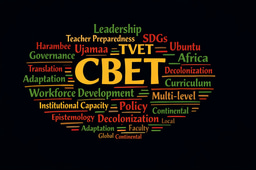Journey of the Research: Public Policy Formulation or Policy Panopticon? Revisiting the Role of Political Elites in Policymaking
Published in Law, Politics & International Studies

As a scholar trained and working within India’s complex policy landscape, I have often found public policy academia to be alien to the lived realities of governance and policymaking in the Global South, especially India. Most of these theoretical frameworks originate in the global North. Though valuable, they are often embedded with culturally and structurally specific assumptions. In India, the policy ecosystem often overlooks these frameworks in mainstream policymaking, or when they are applied, the socio-cultural, political, and techno-governance contexts differ significantly, rendering the frameworks ineffective in explaining or improving how policy is actually shaped and implemented.
This realisation became the impetus for my paper, "Public policy formulation or policy panopticon? Revisiting the role of political elites in policymaking". The central question I explore is deceptively simple: How do political elites shape public policy in democratic systems where formal institutions coexist with informal networks of power and influence? More importantly, how can we develop a theoretical vocabulary that captures this dynamic in a way that is both analytically rigorous and grounded in the context of the Global South?
In this paper, I introduce the concept of the "policy panopticon", a term inspired by Michel Foucault’s notion of the panopticon as a metaphor for unseen, pervasive control. I use this to describe how political elites exert subtle yet far-reaching influence over policymaking processes, not only through formal positions but through their capacity to shape discourse, technology, and governance norms. This influence is not always visible, but it is deeply embedded in institutional arrangements, public narratives, and policy priorities.
To explore this idea, I adopt discourse analysis as the methodological foundation. Discourse analysis allows us to move beyond what policies say on paper to understand how language, assumptions, and ideological positions shape policy design and implementation. My analysis draws upon a broad spectrum of thinkers, from Amartya Sen, whose capability approach reminds us to centre human agency and justice in development, to Langdon Winner, whose work on technological artefacts underscores that technology is never neutral in governance. Alexis de Tocqueville's reflections on democratic exclusion, Bruno Latour's Actor-Network Theory, Michel Foucault's panopticism, and Gaetano Mosca's theory of political class all contribute layers to my analytical framework.
What emerges from this interdisciplinary synthesis is a compelling insight: most dominant public policy frameworks fail to adequately account for the role of political will, especially when that will is exercised through control of technological tools and governance systems rather than through overt political action.
This study argues for the urgent need to re-theorise public policy in a way that is responsive to the conditions of the global South. While comparative public policy as a field has grown, it often remains methodologically aligned with Euro-American models. The result is that we keep applying solutions designed for structurally different systems to contexts where they are ill-suited. Worse still, we often fail to question the underlying power relations that shape these models.
The "policy panopticon" is not a rejection of existing frameworks, but a supplement, a way to see what has remained hidden. It invites scholars and practitioners to pay closer attention to how elites influence policy decisions through more subtle mechanisms: the framing of problems, the selection of "neutral" experts, the choice of technologies, and the invocation of urgency that sidelines democratic deliberation.
This work is both a critique and a call to action. Suppose we are to build inclusive, accountable, and context-sensitive public policy frameworks. In that case, we must begin by recognising the influence of political elites not just as actors within systems, but as architects of the very frameworks that shape policy discourse. Their will, power, and discretion, often invisible to the naked eye, must be brought into analytical focus.
The link to the research is provided at the beginning of this brief. I hope you will read it and share your insights. This research is a step toward that goal. I hope it provokes further study and dialogue, particularly among scholars and practitioners in the Global South, to continue pushing the boundaries of how we understand, critique, and ultimately design policy in complex democratic societies.
Follow the Topic
-
Humanities and Social Sciences Communications

A fully open-access, online journal publishing peer-reviewed research from across—and between—all areas of the humanities, behavioral and social sciences.
Related Collections
With Collections, you can get published faster and increase your visibility.
Interdisciplinarity in theory and practice
Publishing Model: Open Access
Deadline: Dec 31, 2026
Addressing the impacts and risks of environmental, social and governance (ESG) practices towards sustainable development
Publishing Model: Open Access
Deadline: Mar 27, 2026






Please sign in or register for FREE
If you are a registered user on Research Communities by Springer Nature, please sign in